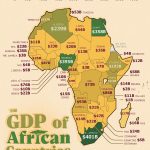 Zimbabwe Deputy Finance Minister Kudakwashe Mnangagwa was cornered in Parliament to state when the long overdue monetary policy statement, which will come up with a new exchange rate management system, will be delivered but he got away with a vague answer that it will be released in a few weeks.
Zimbabwe Deputy Finance Minister Kudakwashe Mnangagwa was cornered in Parliament to state when the long overdue monetary policy statement, which will come up with a new exchange rate management system, will be delivered but he got away with a vague answer that it will be released in a few weeks.
One legislator complained that this was what Mnangagwa had been telling Parliament from January but Mnanbgagwa responded that legislators had to bear with him though he was now beginning to sound like a broken record.
The first monetary policy statement of the year is usually presented at the end of January or early February, but the country is now past mid-March.
Current central bank governor John Mangudya is retiring at the end of April so it is not clear whether the policy statement will be delivered by incoming governor John Mushayavanhu.
The Zimbabwe dollar has dropped from $6 192.4022 on 2 January to $18 201.9215 on 15 March at the official interbank rate.
It is going for $22 000 on the black market but surprisingly cash is still around $5 000.
Q&A:
HON. MURAMBIWA: My question is directed to the Minister of Finance, Economic Development and Investment Promotion. We passed the 2024 National Budget last year in December when the official exchange rate was around US$1:ZW5700. The various ministries and departments set their targets basing on that official exchange rate. Now, the rate has gone up so badly. What is the Minister going to do to ensure that the various ministries and departments are going to achieve the set targets?
THE DEPUTY MINISTER OF FINANCE, ECONOMIC DEVELOPMENT AND INVESTMENT PROMOTION (HON. K. D. MNANGAGWA): Hon. Madam Speaker, I am starting to sound like a broken record. I continue to reference the same issue. Once we have adjusted our exchange rate management system, there will be a re-calibration. This will mean that the figures that are there will be aligned to the new system that is coming up. The exchange rate management system which will be outlined in the upcoming Monetary Policy Statement – again Madam Speaker, without sounding like a broken record, I would plead that until this document comes, we allow debate and any oversight on any other issues to then come in on that.
HON. SAGANDIRA: On that same note Madam Speaker, the concern is on the civil servant whose salary, the Zimbabwean dollar component, was pegged at 333 000 at that same period that the Hon. Member was talking about. It was equivalent to US$60 at that time but today as we speak, it has reduced to US$5. What plans have you put in place to make sure that the civil servants are covered?
HON. K. D. MNANGAGWA: We do take note of the civil servants’ plight, especially the salaries to be of great importance. You will find that there are two issues; one is the component of the salary that has been eroded by the exchange rate volatility and inflation and the other issue might have to do with a general adjustment. Again, these are discussions that are under talks with the TNF. Without pre-empting that, you will see an indexing to avoid that erosion. All these safeguards are measures that keep on revolving around the same issue that I keep on describing to be affecting almost every aspect of our governance which we are currently mapping out.
Continued next page
(320 VIEWS)

